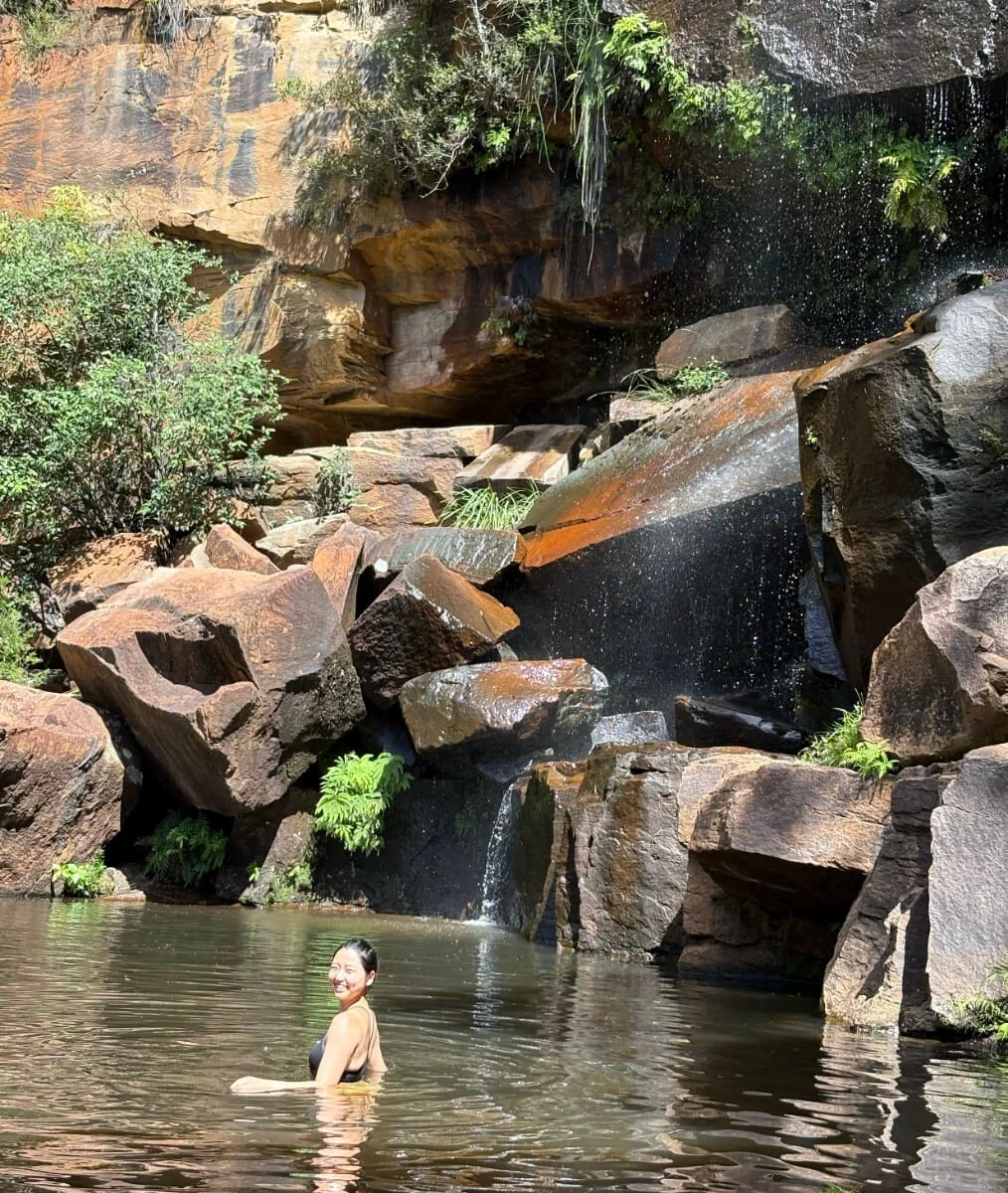Hey all and happy 2025! Here’s wishing you the best for this upcoming year and every success in your current and upcoming video game projects! Acorn has some exciting new projects of our own in the works this year – it’s going to be a huge one for us. I look forward to sharing more with you soon.
I’ve recently been noting how the skills we learn by playing video games can set us up for some of life’s most challenging experiences.
During the Holiday season in 2023, I decided to take huge solo trip into the Australian Outback. When I originally bought my aging Nissan XTrail, I was fully aware that the old girl might already be on her last legs. There was over 200k KMs on the clock, a dodgy throttle to contend with and even the air conditioning was broken. The car was cheap and I only expected it to last me the year at most. Four years later it was still going strong, so I decided what better way to see out the year with a giant trip into the wild. I returned triumphantly back to Brisbane with 2,500 KMs behind me, a scrapbook full of memories and a lifetime of new skills.
Flash forward to 2024 and after regaling my girlfriend with the tales of my adventures, I was surprised when she confidently suggested repeating the endeavour a second time. New route, new locations and my girlfriend, a willing tourist in the passenger seat. I hadn’t yet sold the car so figured what better final hurrah for it, why not a second time?
Assessing Priorities
We set off in great spirits, the roar of the road around us – quite literally – with the switches to the air conditioning broken, the only way to keep cool in the heat of the blaring Australian Summer was to keep the windows wide open at all times. With limited fuel and time, it soon became apparent that in order to reach our first ‘checkpoint’ by sundown, certain concessions must be made. Sticking closely to the schedule near-guarantees our success, but we might end up with a boring by-the-numbers roadtrip. Allowing ourselves a little freedom might present rewards, but at the cost of time or fuel. These were the sidequests of the journey. A small detour reveals a beautiful mountain view, a historic Aboriginal site or even an unlisted petrol station from which to fill up and forge onwards. This was when I first started to notice the similarities between our adventure and the countless video games that had been subtly training me for it. How many times have you played a game and become so caught up in sidequests the main objective was never completed? Choices matter!
One of our more rewarding sidequests
Managing Resources
Many games rely on resources to create challenges, pace progression or form social systems amongst players. The rule of the road is no different. Keeping inventory of our food, water, time and fuel made the journey a seriously challenging survival sim. At times, trading one resource for another created unique choices that had lasting consequences. We needed to use excess water to keep the radiator cool (more on that later) and spending fuel finding additional food was a worthwhile endeavour. Keeping track of our energy levels with regular breaks to stretch, walk (or at one point play an impromptu game of basketball in the middle of nowhere) all had to be measured against daylight hours.
What I noticed was how certain behaviours learned from games carried over to the journey. I’ll be the kind of player in the game who saves the ‘really good’ weapon with limited ammo until I really need it, then invariably completes the game without ever getting to fire a shot. The same was true on the trip; I found myself saving the ‘treat food’ until it was absolutely necessary. I missed out.
Saving that Master Ball since 1998…
Navigating Off Grid
There’s little cellular coverage out in the middle-of-nowhere. Many games these days have some kind of mini-map but with limited phone coverage, keeping the car going in the right direction requires following telltale signals such as tracking the sky or looking for clues left behind from the drivers who passed before. All talents gained through many open-world games!
The roar of the road
Overcoming Adversity
So far, so good but what video game doesn’t like to throw a challenge at you from time to time? We knew the car might struggle with the distance, but we didn’t expect to lose the radiator halfway between two towns. Without warning, we switched genre to puzzle adventure and set about looking to mitigate the damage and remedy what we could. Our next challenge was to signal a tow truck and wait out the night beneath the stars. The next day, we replaced the radiator and were back on the road after a few hours catching up on emails in a café – ah, civilisation!
Unfortunately thanks to some dodgy wiring, the new radiator was only going to work if we kept the air conditioning on. The same air conditioning you recall I said was broken. Turning it on produced an unwelcome surprise, hot air blasting from the vents directly into our faces. Did we need to drive the remaining 1000 KMs home in the 35°+ heat with the heater on full blast? Video games teach us with limited resources we can solve complex puzzles under pressure and within half-an-hour on the side of the road, we had found a way to reangle the broken switches on the dashboard to not only avoid activating the unwelcome sauna setting, but to magically reactivate the long-broken air conditioning. Pacific Drive eat your heart out.
Pacific Drive
Space and Distance
It’s no surprise that gamers are typically found to be above average in measuring space and distance. Many video games require complex spatial recognition and these skills, combined with an understanding of physics came into play during many of our offroading portions of the trip. Analysing the angle of attack for a steep hill, an overgrown road or rough, undulating surface requires an understanding of the car’s weight, power, level of grip and the properties of the surface across which you are attempting to scramble. If you can do it in the game, you can do it in real life! Who here has played Snowrunner?
Can’t be too precious about the detailing out here, it seems
Attention Span
Keeping alert while driving long distances at high speeds is a hard thing to maintain. At any point, a deep pothole or a kamikaze kangaroo could end the trip in seconds. Many games require high attention spans and quick reflexes, even over hours of sustained play. Keeping alert with regular breaks, or playing simple mind-games brought these talents into play, taught through generations of twitch-based action video games. When the radio officially stopped working on us during our final approach, we improvised with something of an a-capella singalong session.
Watch out for kamikaze kangaroos
Video games teach us a number of lessons that factor into multiple areas of our lives. The skills we learn from games can directly benefit our careers, hobbies and adventures. We made it back safely to Brisbane, refreshed and ready to start a new year of video games marketing consultancy! What skills have you learned from video games that you use in real life?
If you want to discuss strategies to effectively market your indie game, tell me about your game here. If you’d like advice on how to plan a five-day trip into the Outback, you’re probably best going elsewhere!
George
Safety first, Rowlet








